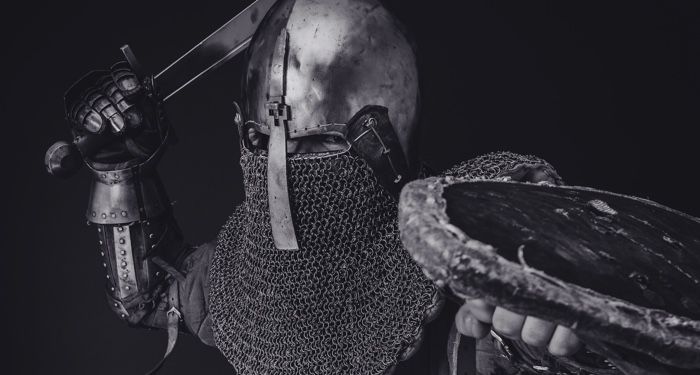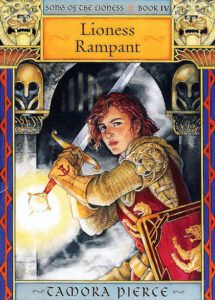
How the Code of Chivalry of Medieval Knights Still Influences SFF Today
I’ve always been enamored by science fiction and fantasy. Stories about space travel, wizards, spells, and aliens really have a way of sparking the imagination of readers. Part of the science fiction and fantasy experience is, of course, worldbuilding. In particular, the worlds built in high fantasy and space opera books, in which our world doesn’t exist, and there are peoples, languages, governments, and rules that are different from ours.
However, many fantasy worlds were built as a reflection of various European societies through the ages. Medieval Europe in particular has a stronghold on fantasy worlds, such as in The Wheel of Time and The Witcher series.
Interestingly enough, whether you’re in Westlands or The Continent, the rules of engagement and manners almost always seem to mirror those in our (European) world, despite all their differences. Even on the planet of Arrakis in Dune, there are certain codes of conduct that wouldn’t be remiss on the Round Table.
For example, what is the etiquette between two people who can kill each other with one magical word? Or between two opposing armies with starships capable of destroying entire planets? It looks like the answer to that is something the Knights of the Round Table mastered: honor.
Merriam-Webster defines the noun form of honor as “good name or public esteem: reputation” and “a showing of usually merited respect: recognition.” This is not to say that reputation and showing respect aren’t part of our own world, but nowadays, reputation has evolved to mean good branding or politeness. The way we practice honor is different and has been adapted to our technology age, whereas the worlds in science fiction and fantasy need something else…something medieval Europe once needed, too. Most of the science fiction and fantasy books I’ve read, at least those based in Europe-like settings, still adhere to the medieval definition of honor, which include keeping one’s word, fighting fairly, and treating guests with the utmost respect.
For example, in Dune, Paul Atreides duels a proud Fremen warrior named Jamis to the death. Paul is able to get the upper hand but right before delivering the killing blow, Paul asks Jamis if he yields. The chivalric code that Paul was raised with demanded that he show mercy to those he was fighting, so he thought he was honoring Jamis when he offered to spare his life. For Jamis, however, the request was an affront. The concept of honor played a key role in this scene and in this part of Dune because it signaled to readers that Paul was now playing by a different chivalric code. In this way, the concept of honor not only showcased the values of the Fremen, who would play a key role in the story, but also that Paul needs to evolve in order to survive.
Much of the type of honor relayed in science fiction and fantasy books harkens back to this medieval European concept of chivalry. The chivalric code was an informal code of conduct that had been developed sometime between 1170 and 1220. Chivalry was a key concept in knighthood, dictating what it means to be a gentleman, and was also tied closely with the institution’s Christian faith. Perhaps the lasting influence of chivalry and its concept of honor centuries later in science fiction and fantasy is rooted in the fact that the system was popularized by (you guessed) medieval literature. I’m looking at you, King Arthur.
That said, I do want to comment that the chivalric code was reserved for men, who in this day and age would be classified as white. So the very basis of this concept of honor in science fiction and fantasy takes a Eurocentric as well as masculine point of view. This is because the concept of honor we generally see in science fiction and fantasy exists in systems designed for and by white men. If you have a woman entering this sphere, she is almost always required to adapt to this male-centered system.
For example, in The Song of the Lioness Quartet by Tamora Pierce, Alanna wants to become a knight. But because she’s a woman, she has to hide her gender and completely indoctrinate herself into the chivalric code in this male-dominated space. Throughout the quartet, readers see her adjust her values and actions so they match the chivalric code of the Knights of Tortall. This is not to say that the code was completely bad, but it’s clear that it always came from a singular point of view. A point of view that Alanna begins to challenge as she matures into herself.
I have to say that as a reader, I love reading about honor and chivalry, because the romantic in me cannot get enough of this medieval concept. Despite its flaws, it’s something that the modern world, with its capitalistic fervor and obsession with image cannot encapsulate. The question, though is if this concept of honor — or, at least, a more inclusive version of it — is in fact science fiction and fantasy, or if it can also exist in the realm of nonfiction.


















